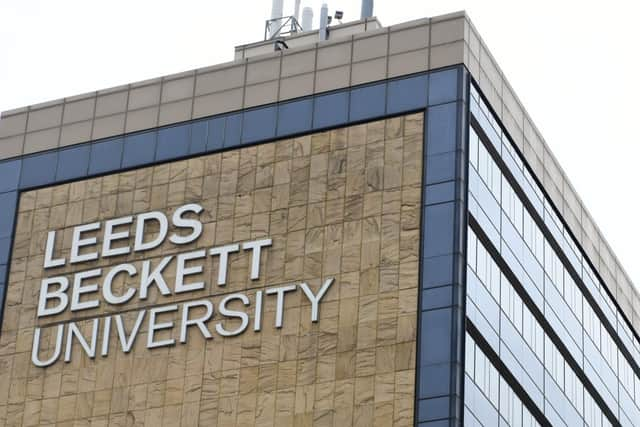Academic suing Leeds Beckett University after being accused of sending 'racist' tweet to political commentator Calvin Robinson
Aysha Khanoum, a religious studies academic with expertise in critical race theory, is suing the university after they ended her services as an academic advisor in February following tweets about conservative political commentator Calvin Robinson in which he was labelled a "house negro".
A subsequent tweet also used the word "coconut".
The phrase "house negro" was popularised by Malcolm X and refers to people of colour who reject their heritage to pacify others, while the term "coconut" refers to a person who is black on the outside and "white on the inside".


Advertisement
Hide AdAdvertisement
Hide AdBoth terms are regularly used in Black academia when discussing issues of race and culture, Ms Khanom says, while critical race theory is the belief that race is a social construct used historically to oppress people of colour.
The 34-year-old claims the University is discriminating against her based on her beliefs in critical race theory, which are protected under the Equality Act.
The tweets were posted from the account for The Race Trust - a charitable organisation founded by Ms Khanom aimed at improving understanding of racial issues - in response to Calvin Robinson who said on BBC talk show The Big Question that he was often labelled "a house negro" due to being Black and right wing.
A tweet from The Race Trust posted on February 14, which tagged Mr Robinson, said: "Does it not shame you that most people see you as a house negro?”


Advertisement
Hide AdAdvertisement
Hide AdThe term "coconut" was subsequently used by the account after the first remark solicited a barrage of criticism.
Ms Khanom's role at Leeds Beckett was terminated later that week after they were made aware of the tweets.
"The suggestion that these terms are racist is ridiculous," Ms Khanom told The Yorkshire Post.
"They are anti-racist. They have been used for a long time and apply just as much now as they used to. Yes, they are shocking, but they are meant to shock – just because they offend some people does not mean they are racist.
Advertisement
Hide AdAdvertisement
Hide Ad"All this situation has done is just show why education about these terms and issues is so important."
Professor Kehinde Andrews, a professor of Black Studies at the University of Birmingham who appeared alongside Mr Robinson on the panel show, has since written an open letter pledging support for Ms Khanom.
The academic said the University's actions had caused her to suffer from bad mental health and that, at one point, she had felt scared to leave her home due to receiving abuse over the tweets.
Emilie Cole, a solicitor for Cole Khan Solicitors who is representing Ms Khanom, said that the University's decision to immediately condemn her client and post about her dismissal on Twitter had been a "gross abuse of power".
Advertisement
Hide AdAdvertisement
Hide AdA spokeswoman for the University said: “We are unable to comment on ongoing legal proceedings although we can confirm that we will be presenting a detailed response against this claim.
“Leeds Beckett University actively opposes all racism and discrimination and stands united in its support for anyone who experiences either, which is clearly demonstrated by our Equality and Inclusion policy.
"We are committed to providing an ethical and sustainable working and learning environment that values equality and inclusion. You can read our policy in full on our website. ”
Comment Guidelines
National World encourages reader discussion on our stories. User feedback, insights and back-and-forth exchanges add a rich layer of context to reporting. Please review our Community Guidelines before commenting.